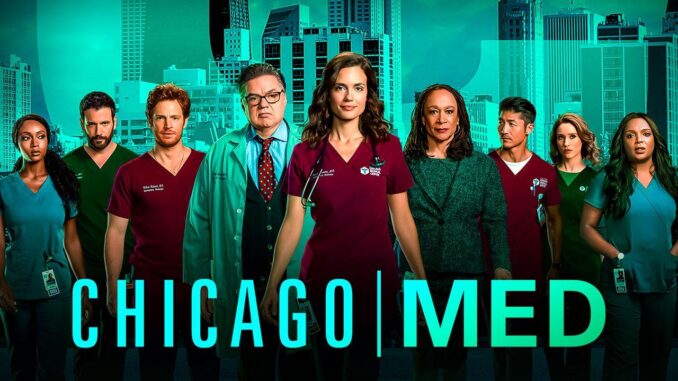
The curtain rises not just on a new play, but on a seismic shift in public perception. Nick Gehlfuss, for years the familiar face of earnest medical integrity as Dr. Will Halstead on Chicago Med, has traded his scrubs for spurs, the sterile gleam of the operating theater for the dusty grit of a desolate motel room. The transition from life-saving physician to love-sick cowboy in Sam Shepard’s Fool for Love is more than a mere career pivot; it’s an audacious artistic statement, a shedding of one skin for another, utterly different, more primal one.
For eight seasons, Gehlfuss embodied the controlled chaos and moral complexities of a modern-day healer. Dr. Halstead was a pillar of the medical drama genre: intelligent, empathetic, often conflicted, but ultimately dedicated to the preservation of life. His world was one of precise diagnoses, urgent interventions, and the rhythmic beep of monitors. We saw him navigate ethical dilemmas with furrowed brow, deliver bad news with a compassionate gaze, and race against the clock with a controlled intensity. The character was a testament to the quiet heroism of the everyday, a figure of stability and responsibility. Gehlfuss brought a convincing blend of vulnerability and unwavering professionalism to the role, anchoring the narrative in the high-stakes world of emergency medicine. He was the man you trusted with your life, literally. The crisp white lab coat, the stethoscope, the measured words – these were his uniform, his persona, etched into the collective consciousness of millions of viewers.
Now, imagine that same face, no longer illuminated by the fluorescent glare of an ER, but by the dim, flickering bulb of a desert motel room. This is Eddie in Fool for Love, a character who lives not by medical charts but by raw instinct, not by logical reasoning but by an explosive, almost feral passion. Eddie is the antithesis of everything Dr. Halstead represents. He is untamed, volatile, haunted by a past he can neither escape nor fully comprehend. His uniform is the faded denim, the scuffed cowboy boots, the grime of the road. His language is not the precise terminology of medicine, but the guttural poetry of desire, jealousy, and a love so intense it borders on self-destruction.
The true artistry of this transition lies not just in the visible change of costume or setting, but in the profound internal alchemy required of the actor. To shed the skin of Dr. Halstead, to strip away the years of accumulated character traits—the composure, the intellect, the ingrained sense of duty—and instead inhabit the restless, dangerous spirit of Eddie, is an act of profound artistic daring. It demands that Gehlfuss not only learn new lines but unlearn old postures, to replace the precise, steady hand of a surgeon with the restless, often violent gestures of a man at war with himself and his world. He must trade the comforting logic of diagnostics for the visceral, illogical pull of a desperate heart.
This isn't merely a change of roles; it's a journey from the cerebral to the primal, from the ordered world of science to the chaotic landscape of human emotion. It challenges both the actor and the audience to broaden their understanding of his range, to see beyond the typecast persona and embrace the full spectrum of his interpretive power. On the stage, unlike the screen, there are no cuts, no retakes, only the immediate, breathing presence of the performer. Gehlfuss steps into Eddie's dusty boots not just as an actor, but as an explorer, delving into the raw, untamed heart of American mythology, where love is a battleground and freedom often means loneliness.
From the measured pulse of a life-saving procedure to the erratic, dangerous rhythm of a love-sick cowboy, Nick Gehlfuss's transformation is a potent reminder of the actor's profound capacity for reinvention. It illustrates the courage required to step out of a comfort zone, to defy expectations, and to immerse oneself fully in characters that challenge, provoke, and ultimately, transcend. He may have played a doctor on TV, but now, as a cowboy, he’s performing a different kind of healing: the audacious, exhilarating healing of the human spirit through art.
